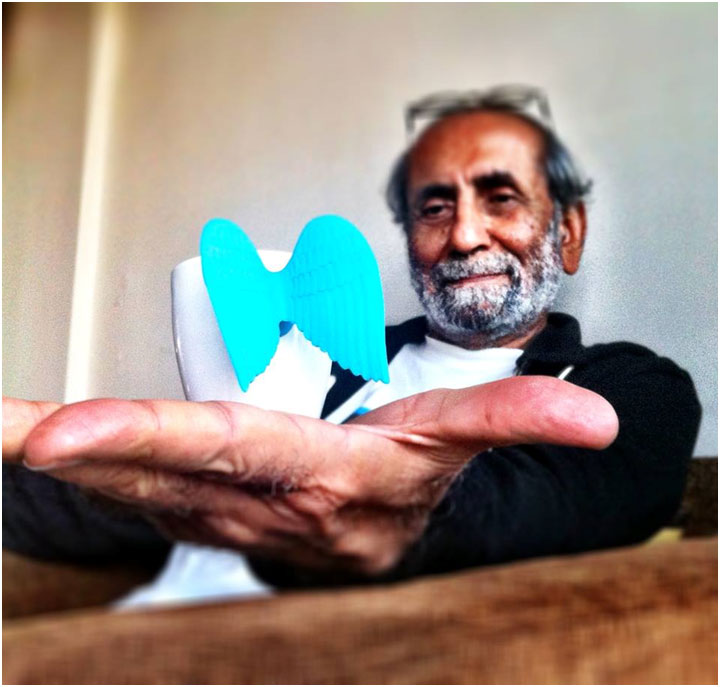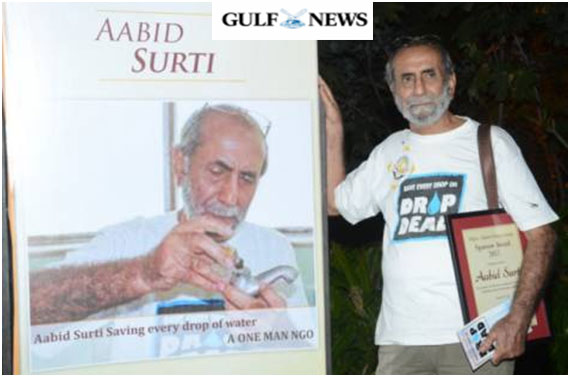INDIAN EXPRESS: 1st Sept. 2013 Writer, painter and now a crusader of water conservation MANASI PHADKE Aabid Surti, a writer and a painter, grew up in a room that he shared with 10 others. Sleeping on the pavement was not unusual for him. Women standing in a queue before a single tap in a ghetto...
Gulf News
GULF NEWS 11th July 2013 Aabid Surti: Drop Dead is my biggest achievement (Special to Weekend Review) He may be a well-known artist and writer but these days he is preoccupied with dripping taps and the need to conserve water Archisman Dinda, Aabid Surti is a National Award-winning author, artist, cartoonist and playwright. But when asked...
Asian Development Bank
Dear Mr. Aabid Surti, May we invite you to an online interview on your work in fixing Mumbai’s leaking pipes? This interview will be part of ADB’s water champion series. As brief background, our water champions are practitioners who introduce or implement water reforms. We invite them to discuss specific topics on the understanding...
The Fern Hotels and resorts
Hello Mr. Surti, It was a pleasure talking with you this evening. Thank you for your inspirational work on saving water in Mira Road with your NGO ‘Drop Dead’. We have made supporting the environment our philosophy at The Fern, a national network of hotels & resorts. A brief profile of us & our...
The Time is Running Out
Water Champion Dear Aabid, We have published the Water Champion article. You can access the page directly here: http://www.adb.org/features/aabid-surti-fixing-mumbais-leaks-one-tap-time?ref=sectors/water/features It also appears in the May issue of ADB’s Water for All News: http://hosted.comm100.com/KnowledgeBase/Issue-55–India–Will-to-Water-(May-2013)_A299.aspx?id=299&siteid=88094 Thank you very much for your cooperation. Best regards, Cezar R. Tigno May 2013 Web Writer, Website Manager Water for All...





